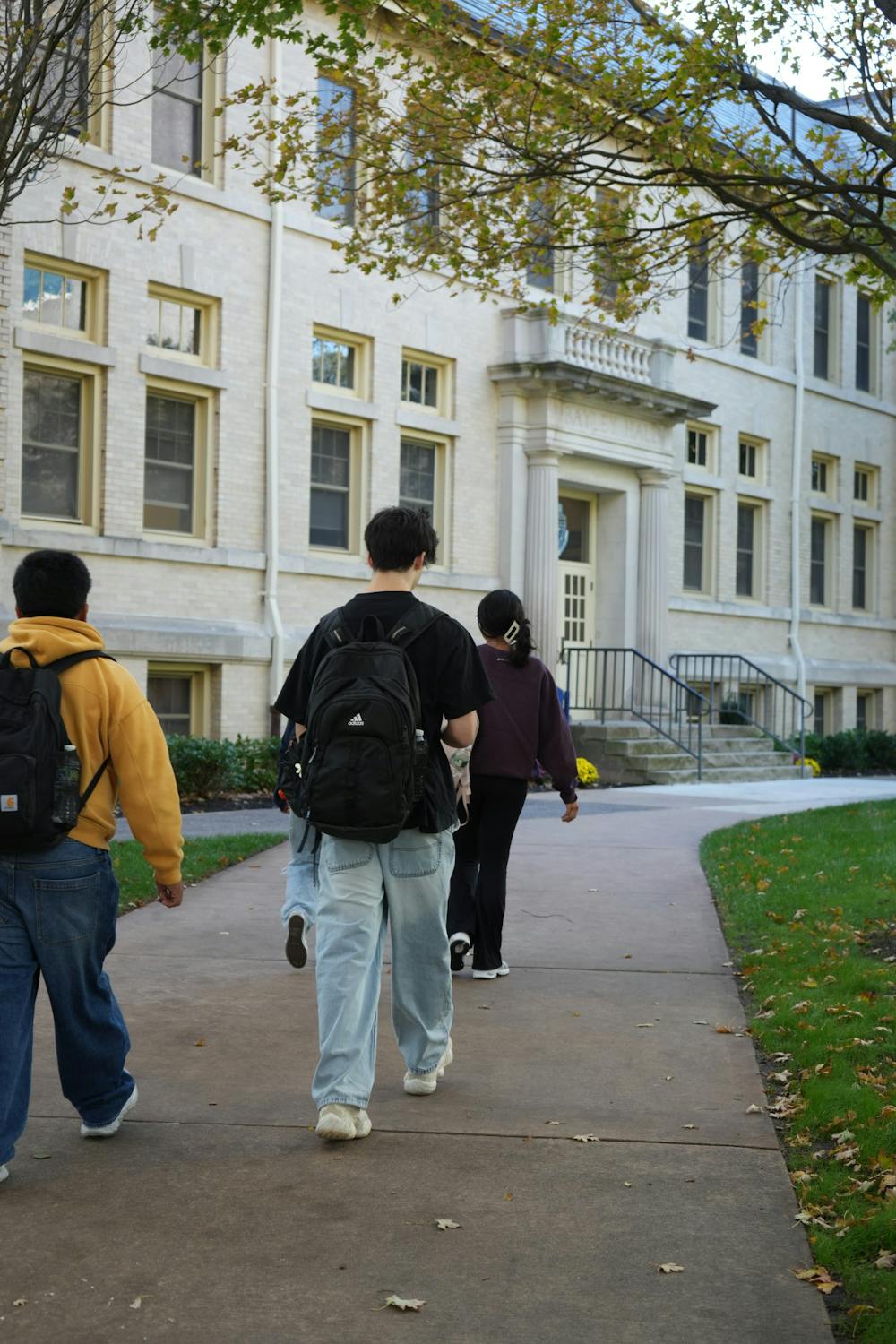Tuition and fee costs for colleges continue to rise as inflation rates recover from COVID-19’s economic impact and changes to federal financial aid enacted in July.
In the College Board annual survey of colleges, last updated in Oct. 2024, private, non-profit four-year colleges’ tuition and fees rose 4% from 2014-2015 to 2024-2025 (inflation-adjusted and enrollment-weighted). Meanwhile, public four-year tuition and fees decreased 4% from 2014-2015 to 2024-2025 (inflation-adjusted and enrollment-weighted).
As a private non-profit institution, Seton Hall’s tuition and fees increase 3% every year.
Inflation rates drive up the cost of university operations and cause tuition to increase, according to Kathleen McCarthy, interim vice president of enrollment management..
“The university continually invests in improving the campus and programs to ensure a high quality in pursuit of academic excellence and a high-quality student experience,” McCarthy said.
Ray Valle, a senior economics and finance major, said he is happy with the amount of financial aid he receives from SHU, but he thinks it is “scummy behavior” for tuition to rise that much in one year.
“We already pay so much,” Valle said. “I know how much I’m paying, and I still have to pay $10 to have the school send an email out for transcripts. Then I also have to pay a couple hundred bucks for a parking pass.”
The current Consumer Price Index (CPI), which measures inflation, shows a 2.9% increase in August 2025 from 12 months. In June 2022, the CPI spiked at 9.1% and increased over 12 months.
The increase was driven by post-pandemic supply chain issues and changes in energy and auto-related prices, which caused the spike in 2022.
Additionally, the Federal Reserve uses the Personal Consumption Expenditures price index (PCE) to measure inflation. The PCE in June 2022 was at 7.2% and dropped to 2.7% in August 2025. While the CPI and PCE have decreased since COVID-19’s economic impacts, the Federal Reserve's goal of 2% has not been reached.
Aside from inflation impacting SHU’s operations, financial aid offers are determined by the Free Application for Federal Student Aid (FAFSA), McCarthy said.
President Donald Trump signed the One Big Beautiful Bill Act into law on July 4. The act removed the partial financial hardship requirement on the Income-Based Repayment Plan, which bases the payment of a student’s monthly loans on their income and family size rather than the loan amount. If an individual’s income changes, the payment plan is recalculated. Congress signed off $10.5 billion to keep the Pell Grant Program running for the next 10 years, and it placed a cap on Parent PLUS loans and Graduate (Grad) PLUS loans.
For the Parent PLUS loan, parents can take out up to $20,000 per year and $65,000 total for each dependent student. Graduates can take out up to $20,500 per year with a $100,000 lifetime total. The changes to PLUS loans will take effect in July 2026.
McCarthy said SHU remains committed to supporting its low-income students.
“The university provides grants and has invested in the Resilience, Integrity, Scholarship, and Excellence (RISE) program,” McCarthy said. “RISE supports Pell-eligible students both academically and financially.”
Genevieve Fernand, a senior economics and marketing major, said college is a big investment.
“It’s not something you can go to the store and buy,” Fernand said. “You are investing in yourself and that your education is going to be worth it. That these [financial aid] offers can help you, especially now, because you can’t take out as much money in student loans.”
In 2002, former President George W. Bush signed the Educational Sciences Reform Act (ESRA) into law. The act established the Institute of Education Sciences under the Department of Education to compile reliable statistics and research on early childhood to postsecondary education for policymakers and the public.
ESRA formed the National Center for Education Statistics, which produces the Digest of Education Statistics (Digest) and the Condition of Education (COE) yearly reports. These reports provide data on enrollment, average financial aid and average net price of attendance for students.
SHU does not use the Digest, the COE, or its Office of Institutional Research, which provides enrollment data trends for the university, when making financial aid decisions, according to McCarthy.
While the Digest and COE are supposed to be yearly reports, the Department of Education is behind on producing key statistics. The most recent full Digest is from 2022, and a partial 2024 Digest was released after their June 1 deadline.
The slow production of data is due in part to federal faculty cuts within the Department of Education. The faculty cuts started in March after Trump released the executive order, “Improving Education Outcomes by Empowering Parents, States, and Communities,” which called to dismantle the Department of Education.
U.S. District Judge Myong Joun in Massachusetts wrote an injunction in May that blocked the order, saying to reinstate the employees who were laid off in March. However, the Supreme Court stopped the injunction on July 14 and allowed the administration to continue layoffs in the department.
Even though public institutions are likely to face the greatest impact of the faculty cuts, SHU relies on federal funding for research grants, internship programs, and federal financial aid for students, including Pell Grants and the FAFSA.
SHU provides over $170 million in grants and scholarships to about 98% of students, according to McCarthy.
“Our financial aid office is always available to speak with students to explore the resources available to support them during their studies,” McCarthy said.
Calla Patino is the head editor of The Setonian’s Opinion section. She can be reached at calla.patino@student.shu.edu.





